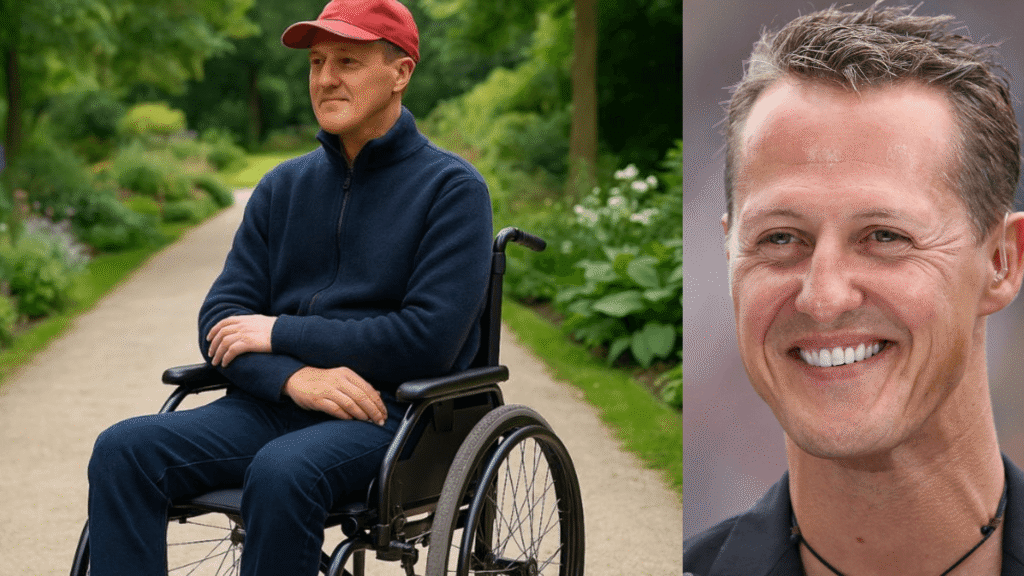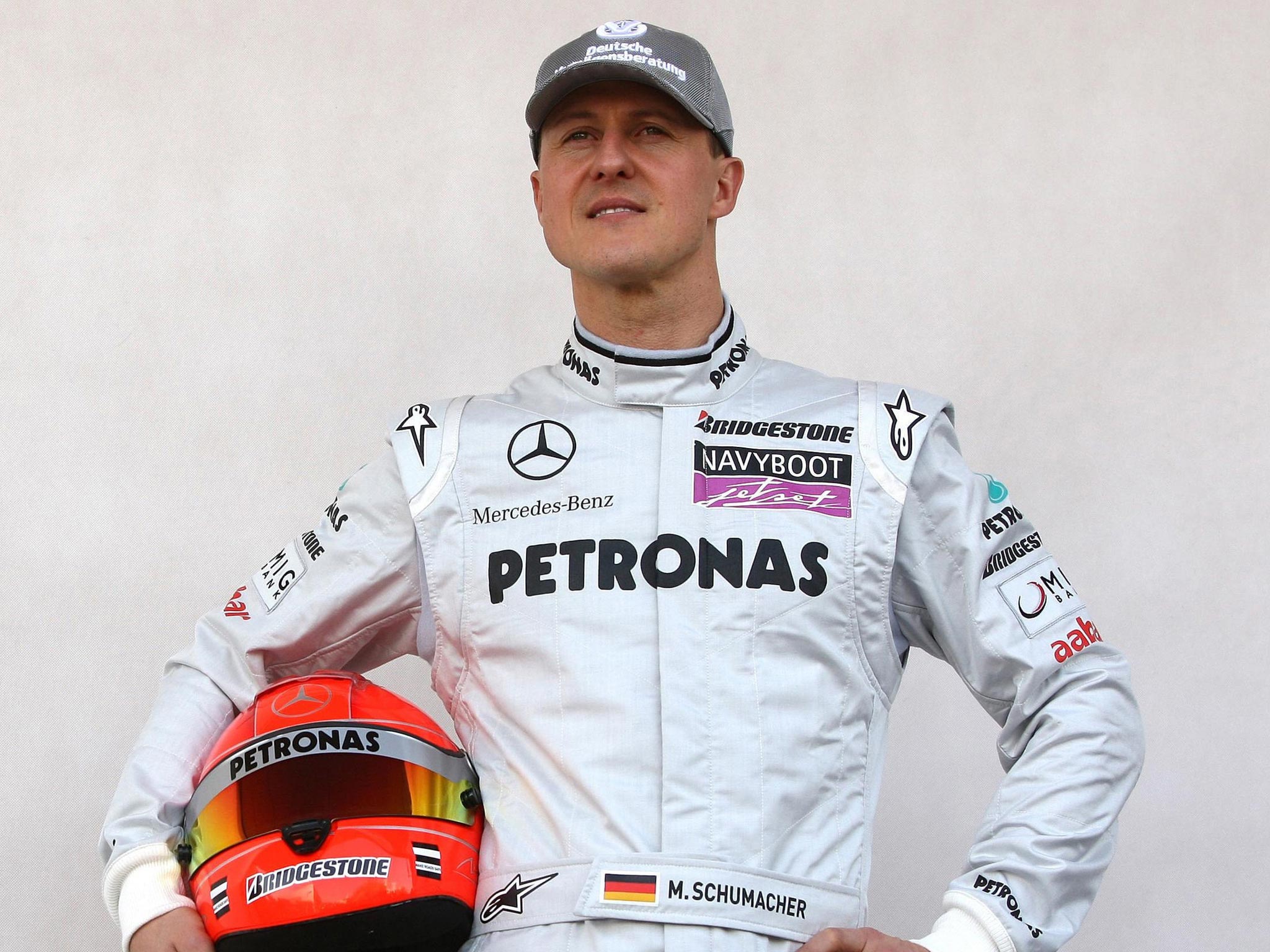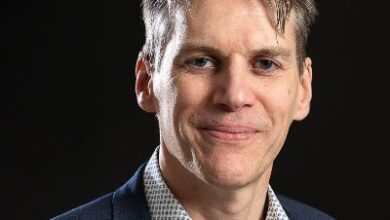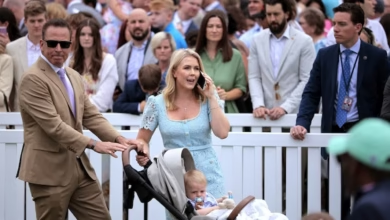Michael schumacher rollstuhl garten : A Symbol of Strength and Resilience

Introduction: The Legend Beyond the Racetrack
Michael schumacher rollstuhl garten when we think of Michael Schumacher, the first images that come to mind are Formula 1 podiums, red Ferrari overalls, and his unmatched dominance on the racetrack. For more than a decade, Schumacher was not just a racing driver—he was the icon of speed, precision, and determination. However, after his tragic skiing accident in 2013, the narrative surrounding him shifted dramatically.
The phrase “Michael Schumacher rollstuhl garten” has recently caught the attention of fans and media alike. It translates to “Michael Schumacher wheelchair garden” in English and refers to rare glimpses or mentions of Schumacher spending time outdoors in his garden while in a wheelchair. This image, though far removed from the roaring engines of Formula 1, still reflects his fighting spirit. It offers a deeply human side of the champion—a reminder that resilience can take many forms.
This article explores what this phrase means, why it resonates so deeply with fans, and how Schumacher’s story continues to inspire millions, even from the quiet comfort of his garden.
The Garden: A Place of Peace and Healing

For someone who once lived life at over 300 km/h, the concept of peace might seem foreign (Michael schumacher rollstuhl garten) yet, after his accident, Schumacher’s world has become one of tranquility, rehabilitation, and small but meaningful progress. Reports suggest that his family home in Switzerland includes a beautiful garden where Schumacher spends time outdoors.
Why the garden? Michael schumacher rollstuhl garten nature has long been associated with healing. The presence of trees, flowers, fresh air, and open space provides a sense of calm that medical treatments alone cannot offer. For Schumacher, sitting in his wheelchair in the garden is not just a casual activity—it represents a therapeutic ritual. It allows him to experience the beauty of the outside world without the chaos of cameras or the noise of speculation.
Moreover, a garden is a private space (Michael schumacher rollstuhl garten). The Schumacher family has been extremely protective of Michael’s privacy, which is why details about his health remain scarce. This garden, away from the public eye, is likely a safe haven where he can find dignity, surrounded by loved ones. The image of Schumacher in his wheelchair in the garden is powerful—it symbolizes both vulnerability and strength.
Family Support: The Backbone of Schumacher’s Recovery
Another dimension to the phrase “Michael Schumacher rollstuhl garten” is the presence of family. His wife, Corinna Schumacher, has been his unwavering supporter through all these years. Reports suggest that she manages not only his medical care but also ensures he has an environment filled with love and positivity.
For any patient recovering from severe injuries, emotional support is just as crucial as medical treatment. In Schumacher’s case, his family plays a pivotal role. His children, Gina-Maria and Mick, contribute to creating a normal, loving atmosphere around him. While Mick has pursued a career in motorsport, echoing his father’s footsteps, he has also openly admitted how much he wishes he could share those racing memories directly with Michael.
The garden, once again, becomes the central stage. It’s a place where Schumacher’s family can sit with him, talk, or simply enjoy moments of silence together. These shared experiences are priceless. For the world, Schumacher remains the seven-time world champion. For his family, he is a father, a husband, and a loved one who deserves dignity and happiness.
Fans’ Emotional Connection: Why “Rollstuhl Garten” Matters
The reason why the keyword “Michael Schumacher rollstuhl garten” has gained so much attention is simple: fans are desperate for updates. Since 2013, very little has been revealed about Schumacher’s condition. The Schumacher family has chosen to keep his recovery private, which is their right. Yet, this secrecy has only amplified the curiosity and emotional investment of fans.
Whenever there is even a hint—be it a photo, a statement, or a rumor—of Schumacher being in his garden, it spreads like wildfire online. Fans interpret it as a sign of life, hope, and resilience. For those who grew up watching him conquer Formula 1 circuits, knowing that he can still enjoy simple outdoor moments feels like a victory in itself.
In a way, this fascination also reflects the changing perspective of fans. Schumacher is no longer admired solely for his racing achievements. Today, he is admired for his courage, his perseverance, and his ability to keep fighting even in silence. His wheelchair does not diminish his legacy—it adds a new layer of respect.
Symbolism: From Speed to Stillness
There is something profoundly symbolic about Michael Schumacher (Michael schumacher rollstuhl garten), once the fastest man in the world, now finding peace in stillness. His life has shifted from adrenaline-fueled races to quiet moments in a garden, yet his story continues to captivate.
This transformation is not a fall from grace—it is an evolution. Every phase of Schumacher’s life teaches us something. On the track, he showed us discipline, strategy, and fearlessness. Off the track, in his recovery, he teaches us patience, resilience, and the importance of cherishing small joys.
The wheelchair and the garden are not symbols of defeat. Instead, they highlight a different kind of victory: the victory of enduring love, the victory of life over despair, and the victory of finding strength in the face of unimaginable challenges.
The Global Impact of Schumacher’s Story
The fascination with “Michael Schumacher rollstuhl garten” is not limited to Germany or Formula 1 circles—it is global. News outlets across the world have covered even the smallest whispers about his recovery. Fans from Asia to South America still hold banners at races, chanting his name.
This shows the scale of Schumacher’s legacy. He is not just a retired athlete—he is an international figure whose life story resonates beyond motorsport. His current journey, though private, continues to inspire conversations about medical rehabilitation, the importance of family, and the human capacity for resilience.
Even other athletes have cited Schumacher as an inspiration, not just for his racing records but for his strength in recovery. The garden moments, though small in detail, fuel this ongoing admiration. They remind the world that legends are human too—and that their humanity makes them even greater.
Conclusion: A Champion in Every Sense
The phrase “Michael Schumacher rollstuhl garten” may sound simple, but it carries profound meaning. It paints a picture of one of the greatest athletes of all time, sitting in a wheelchair, surrounded by nature, supported by family, and admired by millions.
It is a reminder that life after tragedy is not defined by what we lose but by how we continue to live. Schumacher, once the king of speed, is now a quiet warrior of resilience. His story is still being written—not on racetracks, but in gardens, in family moments, and in the hearts of fans who continue to cheer for him.
Michael Schumacher may not be racing anymore, but in his fight for recovery, he proves that he is still, and always will be, a true champion.
You May Also Read
Caren Miosga Brustkrebs and the Conversation About Breast Cancer



